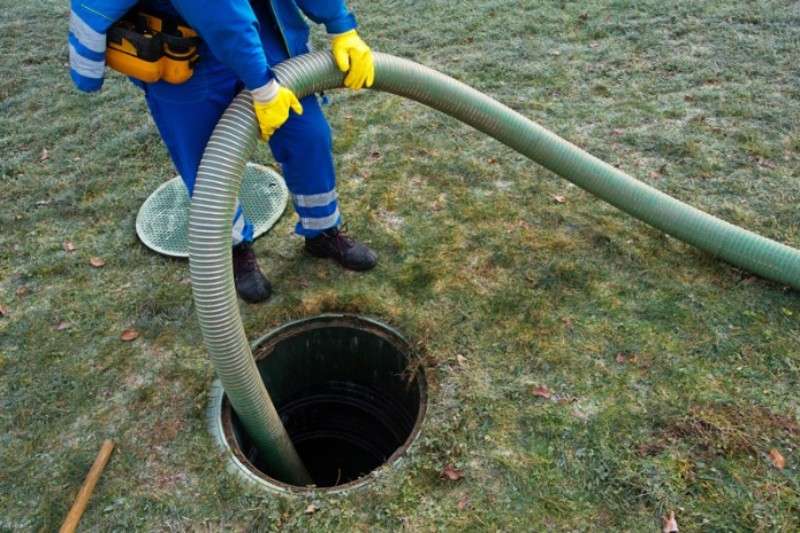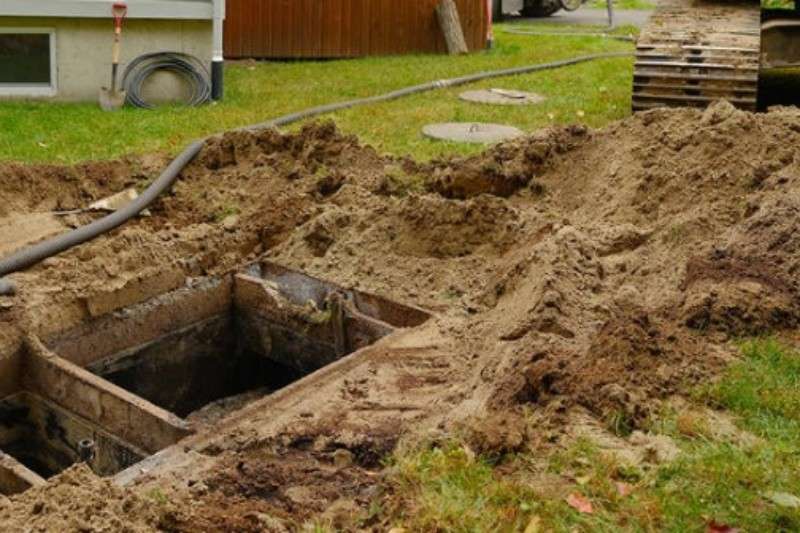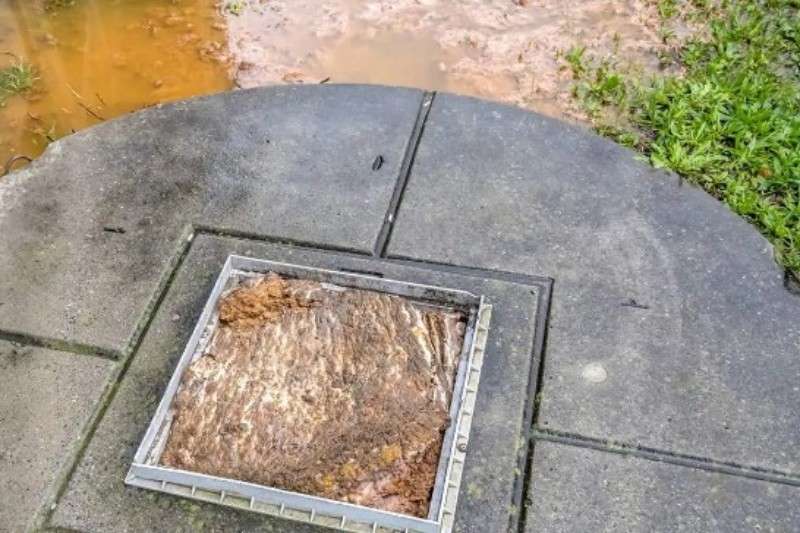There’s nothing worse than being stuck in a house with overflowing sewage, however dangerous it may be. Clogged septic tanks can bring an unpleasant surprise if you’re unaware of their potential risks–they are unsanitary and smelly and can also become hazardous to your health and property if left unchecked.
In this blog post, we’ll look at the dangers of overloading your septic tank so you can identify any problems before it’s too late.
Introduction to septic tank overloading
Septic tanks are common on-site wastewater treatment systems and solutions in rural or urban areas without a public sewage system connection. They typically consist of a large concrete tank that holds sewage and is connected to an underground pipe system called the drain field. Septic tanks allow solids to settle at the bottom while scum and liquids stay on top before being released into the drain field. Overloading your septic tank can lead to various problems that put the system’s function and your health at risk.
Septic tank overloading is defined as when too much water or solid waste enters the tank in a short amount of time. This can often be caused by too much water being flushed or by introducing substances that cannot easily break into the tank. When a septic tank becomes overloaded, it causes sludge and scum to escape, leading to clogged drain pipes and an inefficient system.
The risks of overloading your septic tank include potential back-ups into your home, costly repairs, and even serious health hazards due to contamination. To avoid these risks, it is important to monitor the amount of water used in the household and be mindful of what is being introduced into the septic tank. Regularly scheduled maintenance from a professional plumber can also help ensure your septic system owners remains efficient and healthy. Proper use of your septic system is the key to keeping it working efficiently and avoiding costly repairs in the future.
When used correctly, septic tanks can be a great solution for household wastewater well management, but the overloading risks should not be ignored. Keeping an eye on household water usage, knowing what substances are safe for introduction into the tank, and scheduling regular maintenance from a qualified plumber are all key steps to preventing the overloading of your septic system. Doing so will ensure that your septic system remains healthy and working properly for years.
Causes of septic tank overloading
Overloading your septic tank can seriously affect the environment and your family’s health. It can also lead to costly repairs and a replacement system that is not financially feasible. To avoid these risks, it is important to understand what causes septic tank overloading, how to prevent it, and when professional help may be needed.
Septic tank overloading can be caused by excessive water use, inadequate tank size for household needs, and flushing of inappropriate materials. Households with more people than the septic tank were designed to handle or do not adhere to proper routine maintenance and schedules are at an increased risk of overloading their septic tanks. Additionally, using a lot of gallons of water all at one time or flushing materials such as baby wipes, paper towels, and feminine hygiene products can also overload your septic tank.
To prevent overloading your septic tank, it is essential to practice proper water usage. This includes taking shorter showers, washing clothes with cold water instead of hot, and avoiding long periods of running water when doing dishes. It is also important to install efficient fixtures and appliances that are designed with water conservation in mind. Additionally, avoid flushing anything other than human waste and toilet paper down the drain, as these items can clog your septic tank.
Septic system backups and clogs

It’s important to know the risks of overloading your septic tank. Septic system backups and clogs can occur when the tank’s waste exceeds capacity. This can lead to a variety of problems, including:
• Poor drainage due to blockages in the pipes leading out from the system.
• Sewage backup into the property, resulting in serious flood water and a horrible and expensive mess to clean up.
• Corrosion of pipes due to increased levels of sulfide gas.
• Septic system failure, leading to costly repairs or replacement.
A septic tank is designed to handle a certain amount of waste for garbage disposal. When it becomes overloaded, the waste in the septic tank overload and has nowhere to go and begins to back up into drains or out of pipes onto your property. It can also cause clogs in the pipes from the septic system, leading to drainage problems throughout your home or business.
Drain field failure and contamination
Overloading your septic tank can cause serious problems, including drain field failure and contamination. Excess wastewater does not properly filter through the system when the septic tank is overfilled. As a result, the soils around your drain field become saturated and eventually fail to absorb any more liquid. This can lead to an accumulation of wastewater and sewage in your yard, which can be a nuisance, create strong odors, and pose serious health risks.
The link between septic tank overloading and drain field problems is also closely related to the amount of solids in the wastewater. Excessive solids can cause clogging and blockages that prevent the wastewater from properly filtering into the soil. This can lead to a backup of wastewater in your yard, resulting in contamination, standing water, and other hazardous conditions.
Environmental and health risks associated with drain field contamination are a major concern for homeowners. Contaminated soils can contain harmful bacteria, viruses, parasites, or chemicals that can be hazardous to humans, animals, and plants. Long-term exposure to contaminated surface water or soil can cause serious health consequences, including infections, respiratory illnesses, skin irritation, and cancer.
Decreased septic system lifespan
It is important to be mindful of the amount of water entering your septic tank. An overloaded septic system can cause several issues that could lead to costly repairs or even the replacement of your entire system.
One of the most common risks associated with overloading a septic tank is decreased septic system lifespan. If your tank is overloaded with water, it will have to process more waste than it was designed for. This can lead to an increased amount of solids accumulating in the otherwise properly functioning septic system and a decrease in the effective volume of your septic tank. Over time, this could cause clogging and other damage that will reduce the otherwise properly functioning septic system’s lifespan.
The impact of overloading on the longevity of your septic system will also depend on how overloaded it is. If too much water enters the tank, it could cause flooding and other damage to the tank and the surrounding area. This can lead to costly repairs or a completely new septic system replacement.
Lastly, the costs of repairing or replacing a damaged system can be significant. If your septic tank becomes clogged or flooded, it may require professional help to fix the issue. Additionally, if your system is beyond repair, you will have to foot the bill for a new one, often costing thousands of dollars.
Preventing septic tank overloading

Septic tanks serve an important function in treating wastewater from home, but when overloaded, they can pose serious risks to your health and the environment. To keep the liquid portion of your septic system running efficiently and safely, it’s important to understand what it is and how it works.
Septic tanks are underground holding tanks that treat wastewater using natural bacteria to break down solids. The septic tank pumped holds the wastewater until all the solid material is broken down and released into a drain field or other disposal system. This process generally takes between one and three days. If too much water is introduced into the septic tank, it will become overloaded and unable to function properly.
FAQs
How can I tell if my septic tank is overloaded?
If you notice backups in your plumbing, foul odors coming from your drains, slow drainage in sinks or tubs, flooding in your yard, or an accumulation of wastewater near the drain field, these could be signs that your septic tank is overloaded.
What should I do if I suspect my septic tank is overloaded?
If you think your septic tank may be overloaded, the best thing to do is contact a professional plumber or septic specialist. They can inspect your septic system records and advise you on the best action.
How can I prevent septic system overloading during heavy rainfall or flooding?
To prevent overloading your septic tank or sump pumps during heavy rainfall or flooding, you should ensure your system is designed to handle the additional water. This can involve adding more tanks or pipes to disperse the extra water and installing a sump pump in case of flooding.
Can septic tank additives help prevent overloading?
Septic tank additives can help break down solids and reduce buildup in your septic system, but they will not prevent overloading. To prevent overloading, the best thing to do is monitor the water entering the system and contact a septic professional if you suspect it may be overloaded.
How does overloading affect the bacterial balance in my septic tank?
Overloading can disrupt the bacterial balance in boiling water in your septic tank, resulting in the accumulation of solids and a decrease in system efficiency. This can lead to clogging and other damage that will reduce the system’s lifespan.
How often should I inspect my septic system to prevent overloading issues?
Inspecting your septic system every three to five years is recommended to ensure it is functioning properly and that there are no signs of overloading. If you notice any issues with septic systems during an inspection, contact a professional for help.
Are there any warning signs that my septic system is nearing capacity?
Some warning signs that your septic system may be nearing capacity include slow-draining sinks or tubs, sewage backups somewhere in the plumbing, foul odors from drains, flooding in your yard, and accumulating wastewater near the septic drain field.
Conclusion
All in all, avoiding overloading your septic tank is essential to minimizing the dangers of a clogged system. To accomplish this, consider preventing septic tank overload by having it pumped out periodically, inspect the tank and drainage field for any telltale signs of damage or clogging, and get a prompt repair when needed. This proactive strategy can save you headaches from danger now and in the coming years and prevent septic tank overload issues.


